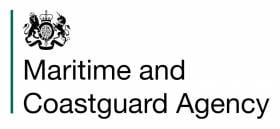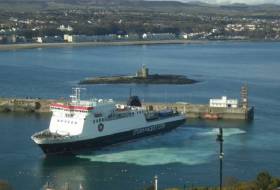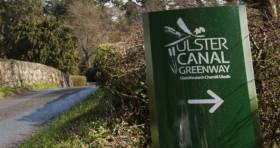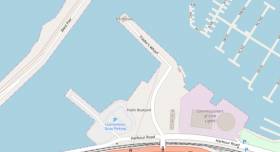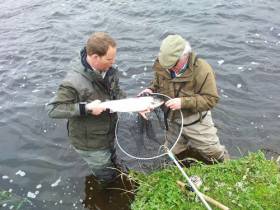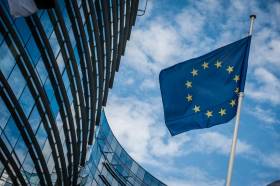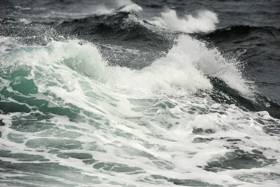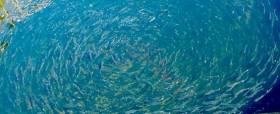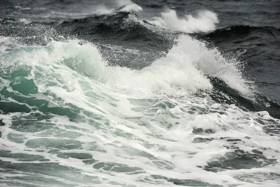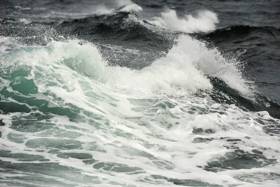Displaying items by tag: consultation
The UK’s Maritime and Coastguard Agency (MCA) wants to hear recreational boaters’ views on six draft Marine Guidance Notes (MGN) concerning guidance on boat safety over the next few weeks.
RYA cruising manager Stuart Carruthers said: “The MCA has launched this consultation following the Cheeki Rafiki trial where the judge commented that there were aspects not covered by the construction standards for small commercial vessels which should be considered best practice.
“The RYA already provides a considerable amount of safety advice that is readily accessible by the boating public and intends to submit a full response, outlining our views and the concerns of our members.
“Our response will focus on the interests of pleasure boaters with the aim of ensuring that any guidance is clear, realistic and proportionate.”
The six notices cover guidance on keel groundings, rigging inspections, preparedness, stowage of lifesaving gear, vessel resilience and emergency procedures, and maintenance, modifications, damage and repairs.
They are aimed at both small commercial vessels as well as pleasure boats.
The MCA states that it wishes to reinforce to owners, managing agents and skippers of both commercial and pleasure vessels what it considers good practice in terms of safety when going out to sea.
Boaters’ views are sought in the following areas:
- Whether the draft notes contain guidance that is realistic to carry out in practice
- What other costs and benefits there might be that haven’t been included in the de minimis assessment
- If there is the right level of content in each MGN
Full details on the draft MGNS and how to give your views can be found on the UK Government website. A full list of consultation questions is contained in Section 5 of this consultation.
The consultation closes on Thursday 18 July and the RYA encourages all UK boaters to respond.
Isle of Man Steam Packet Consultation Results to be Published
#ferries - The Isle of Man infrastructure minister reports Manx Radio, has pledged to make the findings of the Steam Packet consultation available to the public - in full.
Ray Harmer recently appeared on the radio station's Perspective programme to discuss government's acquisition of the company, which he says has been ongoing since 2016.
Douglas East MHK Chris Robertshaw has been critical of Treasury and the Department of Infrastructure throughout the process, arguing there's been a lack of transparency.
Mr Harmer says full results of the consultation 'can' be available soon.
To listen to his comments click the link to a podcast here.
#InlandWaters - A series of three ‘community information events’ on the next phase of the Ulster Canal Greenway begins this week, with a meeting at Tyholland Community Centre in Co Monaghan from 4pm to 8pm tomorrow (Tuesday 2 October).
This will be followed by events at Middletown Community Parish Hall, Co Armagh on Wednesday 10 October, and Smithborough Community Hall, Co Monaghan on Thursday 18 October, both also from 4pm to 8pm.
Waterways Ireland; Monaghan County Council; Armagh City, Banbridge and Craigavon Borough Council; and East Border Region Ltd are working in partnership to deliver Phase 2 of the Ulster Canal Greenway.
Landowners, local communities and the general public are invited to these information events to find out more about the project.
‘National Watersport Centre’ For Dun Laoghaire Back On Agenda With Launch Of Market Consultation
#Watersport - Proposals for a national watersport centre in Dun Laoghaire Harbour have been revived with the launch of a preliminary market consultation.
Afloat.ie previously reported on plans in 2015 for a ‘National Watersports Academy’ on the site of the former Stena HSS terminal.
With that facility at St Michael’s Pier set to reopen later this year as the Harbour Innovation Campus, Dun Laoghaire Harbour Company has scaled back its plans and selected a new location at Traders Wharf further to the west, close to the existing home of the Irish National Sailing & Powerboat School.
Per the consultation document, the harbour company “envisions a multi-discipline centre” encompassing sailing, powerboating and related training; diving; kayaking and SUP; rowing and dragon boating; windsurfing, wakeboarding and waterskiing.
“This is an exciting initiative, which could provide a high calibre water sports centre in a truly unique marine environment,” the harbour company adds.
Expressions of interest are being sought from “parties with the relevant expertise, experience and resources” by 5pm on Tuesday 13 March to Gerry Dunne at [email protected].
Wild Salmon & Sea Trout Tagging Scheme (Amendment) Regulations 2017 and Conservation Measures For 2018 Season
#Angling - Sean Kyne, Minister of State at the Department of Communications, Climate Action and Environment, gives statutory notice of his intention to make the Wild Salmon and Sea Trout Tagging Scheme (Amendment) Regulations, 2017 to provide for the management of the wild salmon and sea trout fishery by Inland Fisheries Ireland from 1 January 2018.
A copy of the draft regulations is open for public inspection at the offices of the department in Cavan and also at the offices of Inland Fisheries Ireland.
Any person may submit observations and.or objections to the draft regulations at any time during the period of 30 days concluding Thursday 14 December either by e-mail to [email protected] or to the following address:
Inland Fisheries Division
Department of Communications, Climate Action and Environment,
Elm House,
Earlsvale Road,
Cavan Town
H12 A8H7
Ireland
Tel (01) 6783071 / Lo-call 1890 449900 Ext 3071
Note that rates charged for the use of the 1890 number may vary between service providers.
All submissions received will be published on the department’s website following the conclusion of the consultation period.
Consultation On Common EU Rules For Small Passenger Ships
#Consultation - The European Commission has launched an online consultation to collect views of stakeholders on the extent to which common EU rules could facilitate the internal market for passenger ships below 24 meters in length.
The results of this consultation will inform the forthcoming proposal of the Commission for a Council Recommendation on safety goals and functional requirements for these types of ships.
This consultation is targeted at economic operators involved in building of and trading in small passenger ships, such as shipyards, designers, owners and operators thereof (all other stakeholders can contribute to this consultation if they wish).
It complements the technical work steered by the European Maritime Safety Agency and carried out together with national experts and stakeholders in the framework of the Passenger Ship Safety Expert sub-group.
The consultation is available from the European Commission website HERE. The deadline for responses is Thursday 30 November.
Spiddal Marine Energy Test Site Plans Attract More Than 500 Submissions
#GalwayBay - More than 500 submissions were lodged during last year’s public consultation on proposals to upgrade the marine energy test site in Galway Bay off Spiddal.
And according to the Connacht Tribune, many voiced serious concerns over the project’s potential impact on Galway Bay.
As previously reported on Afloat.ie, the Marine Institute had applied to the Department of the Environment, Community and Local Government for a foreshore lease for the site where prototype marine and renewable energy technology would be tested at reduced scale.
The consultation period, which closed on 17 June last, was accompanied by a public information evening on the project and its ambitions.
However, the Connacht Tribune reports that the response from local businesses and communities has been largely negative.
One fisherman expressed his fear that the lease area could be expanded into prawn grounds already reduced by the original lease for the site a decade ago.
Other concerns include the 35-year period of the lease, the scope and veracity of information provided, and the lack of an Environmental Impact Statement, as well as the impact on tourism on the Wild Atlantic Way in South Connemara.
The Connacht Tribune has more on the story HERE.
Campaigners Fear ‘Back Door’ Salmon Farming Via Galway Bay Test Site
#FishFarm - Could proposals for the Galway Bay Marine and Renewable Energy Test Site provide a back door for fish farming in the bay?
That’s the concern of local campaigners after a Statutory Instrument was enacted earlier this month that changes the licensing laws for salmon farming for research purposes, as the Connacht Tribune reports.
The new law allows for salmon farms under 50 tonnes to operate without an Environmental Impact Assessment – one of the issues before the withdrawl last year of controversial plans for what would have been one of the largest aquaculture projects in Europe off the Aran Islands.
According to Billy Smyth, chair of campaign group Galway Bay Against Salmon Cages, the move confirms suspicions that the Marine Institute test site off Spiddal could be used for fish farming.
“Let the Marine Institute just ask the Norwegians for the results of their research and save money,” he said.
The public consultation on the foreshore lease application for upgrades to the present test site closed earlier this month.
But contributions are still being sought on a new strategy for coastal communities with fishing and fish farming interests under the FLAG West scheme, following a series of public meetings in Co Galway last week. Galway Bay FM has more HERE.
Locals Express Fears As Deadline Draws Near On Galway Bay Marine Test Site Consultation
#SeaPower - Fears over loss of access to generations-old seaweed harvesting grounds and millennia-old archaeological finds have been expressed by locals in the consultation on the new Galway Bay Marine and Renewable Energy Test Site, which closes next Friday 9 September.
According to The Irish Times, community activists in Spiddal have accused the State agency responsible of a "lack of transparency" over its intentions for a long-term lease over the foreshore site on the Connemara coast that's already home to the new SmartBay observatory.
Locals have also expressed concerns that the new facility would be used for power generation and not just for testing of quarter-scale prototypes, that it would cover an area some "30 times the size of Croke Park", and that the main test wind turbine would reach a height of 35 metres.
"We run a regatta in Spiddal every year of Galway hookers and it is right on the line of the regatta," said an organiser of the public meeting held in Spiddal last Monday 22 August. "There was no environment impact statement; there was no consultation with the likes of us."
#SeaPower - The public consultation period for the Marine Institute’s foreshore lease application to upgrade the Galway Bay Marine and Renewable Energy Test Site has been extended once more, until 5pm on Friday 9 September.
This latest extension follows the public meeting on Thursday 21 July in the Connemara Coast Hotel, during which some participants requested more time to allow informed submissions on the lease application.
It also comes after complaints from Galway West TD Catherine Connolly over a lack of response from Local Government Minister Simon Coveney over the issue, as the Galway Advertiser reports.
The meeting was the third public meeting held as part of the consultation on the foreshore lease application to upgrade test and demonstration facilities at the Galway Bay Marine and Renewable Energy Test Site.
The Marine Institute applied in April to the then Department of the Environment, Community and Local Government for a foreshore lease for the site where prototype marine renewable energy technology can be tested at reduced scale to determine viability in an ocean environment.
All relevant documents remain on viewing until the new deadline.
Some 25 submissions have been received as of the previous deadline of 2 August, according to Galway Bay FM.



























